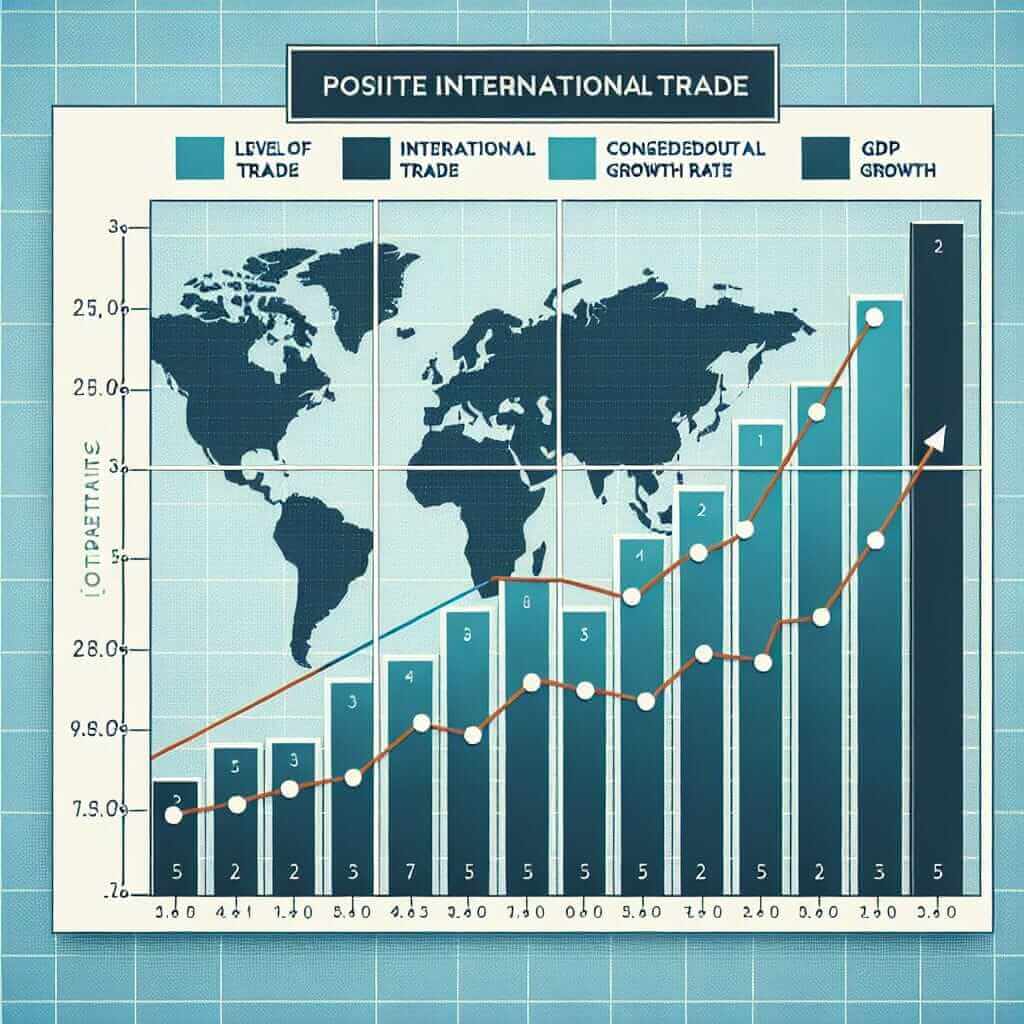The impact of international trade on economic growth is a recurring theme in IELTS Writing Task 2, particularly within the realm of economic topics. Understanding this complex relationship, and being able to articulate your thoughts clearly and effectively, is crucial for achieving a high band score. This article aims to equip you with the knowledge and skills necessary to confidently tackle this essay type.
We’ll analyze potential essay questions, dissect a sample question, provide a band 8 model answer, and highlight key vocabulary and grammatical structures to enhance your writing.
Sample IELTS Essay Questions
Here are some potential essay questions related to the effects of international trade on economic growth:
- Some people argue that international trade leads to economic growth, while others believe it can harm developing countries. Discuss both views and give your opinion.
- To what extent do the benefits of international trade outweigh the drawbacks for developing countries?
- Globalization has led to a significant increase in international trade. What are the positive and negative effects of this trend on economic growth?
Model Essay: Analyzing the Impacts of International Trade
Let’s choose the first question from our list and develop a comprehensive model essay:
Question: Some people argue that international trade leads to economic growth, while others believe it can harm developing countries. Discuss both views and give your opinion.
Model Essay:
International trade, the exchange of goods and services across borders, has become a cornerstone of the global economy. While proponents argue that it fuels economic growth, critics contend that it can be detrimental to developing nations. This essay will delve into both perspectives before presenting a balanced conclusion.
On the one hand, international trade can be a powerful engine for economic expansion. By providing access to larger markets, countries can specialize in producing goods and services where they have a comparative advantage. This specialization leads to increased efficiency, productivity, and ultimately, economic growth. Moreover, trade fosters the transfer of technology and knowledge, further boosting productivity and innovation. For instance, developing countries can acquire advanced machinery and manufacturing techniques from developed nations, accelerating their industrialization process.
On the other hand, concerns about the potential negative impacts of international trade on developing countries are not unfounded. Some argue that it can lead to dependence on developed nations, making them vulnerable to global market fluctuations and price volatility. Additionally, unfair trade practices, such as subsidies and dumping, can stifle the growth of domestic industries in developing countries. For example, heavily subsidized agricultural products from developed countries can flood the markets of developing nations, undermining local farmers and hindering their agricultural sector’s progress.
In conclusion, while international trade undeniably presents opportunities for economic growth, it’s crucial to acknowledge the potential risks it poses, particularly to developing nations. Striking a balance between reaping the benefits of globalization while mitigating its adverse effects requires careful policymaking, fair trade practices, and a commitment to sustainable and inclusive development.
(Word count: 272 words)

Writing Tips and Vocabulary
Key Points to Remember:
- Structure: Follow a clear structure: Introduction, Body Paragraph 1 (Benefits), Body Paragraph 2 (Drawbacks), Conclusion.
- Balance: Present a balanced argument by discussing both sides of the issue.
- Examples: Use relevant and specific examples to support your points.
- Vocabulary: Use a range of vocabulary related to economics and trade.
- Grammar: Pay attention to grammar and sentence structure.
Vocabulary:
- Comparative Advantage (noun): /kəmˈpær.ə.tɪv ədˈvɑːn.tɪdʒ/ – The ability of a country to produce a good or service at a lower opportunity cost than another country.
- Efficiency (noun): /ɪˈfɪʃənsi/ – The state or quality of being efficient, performing or functioning in the best possible manner with the least waste of time and effort.
- Innovation (noun): /ˌɪn.əˈveɪ.ʃən/ – A new method, idea, product, etc.
- Fluctuations (noun): /ˌflʌk.tʃuˈeɪ.ʃənz/ – Irregular rising and falling in number or amount; variations.
- Subsidies (noun): /ˈsʌb.sɪ.diz/ – Sums of money granted by the state or a public body to help an industry or business keep the price of a commodity or service low.
- Dumping (noun): /ˈdʌm.pɪŋ/ – The export of goods at a price lower than the price charged in the exporter’s domestic market.
- Stifle (verb): /ˈstaɪ.fəl/ – To prevent or constrain (someone or something) from development.
- Mitigate (verb): /ˈmɪt.ɪ.ɡeɪt/ – To make something less severe, serious, or painful.
- Sustainable (adjective): /səˈsteɪ.nə.bəl/ – Able to be maintained at a certain rate or level.
- Inclusive (adjective): /ɪnˈkluː.sɪv/ – Including all the services or items normally expected or required.
Conclusion
Discussing the effects of international trade on economic growth requires a nuanced understanding of both its advantages and disadvantages. By mastering the key vocabulary, practicing structuring your arguments, and supporting your claims with relevant examples, you’ll be well-prepared to excel in your IELTS Writing Task 2. Keep practicing, and remember to approach each essay with a critical and analytical mindset.